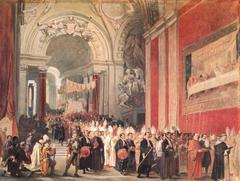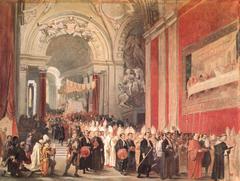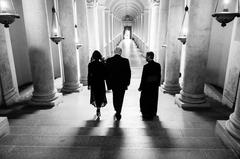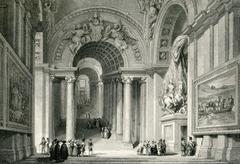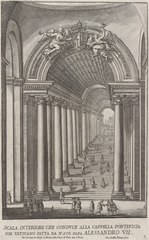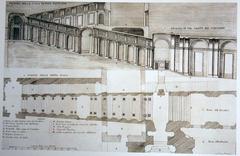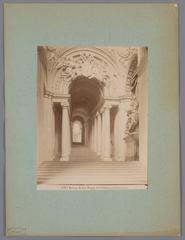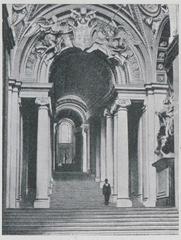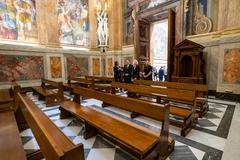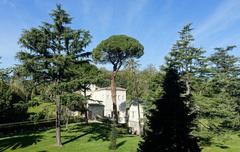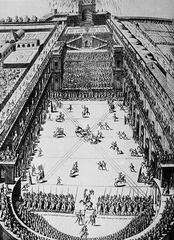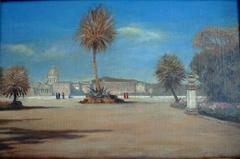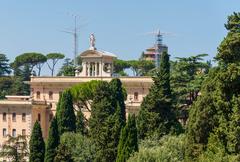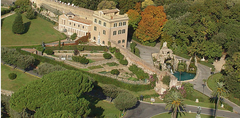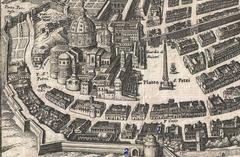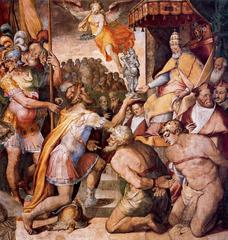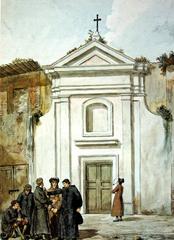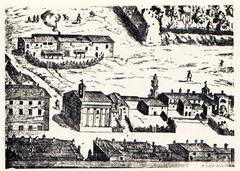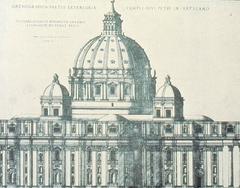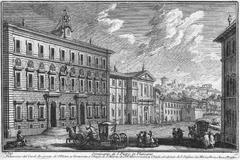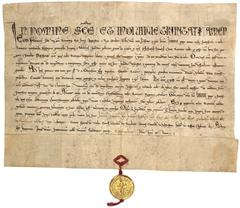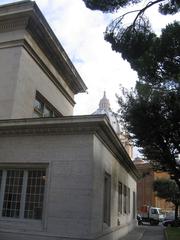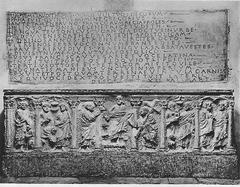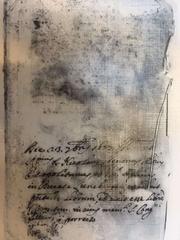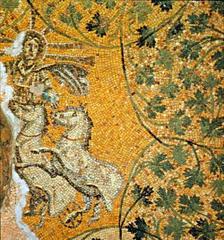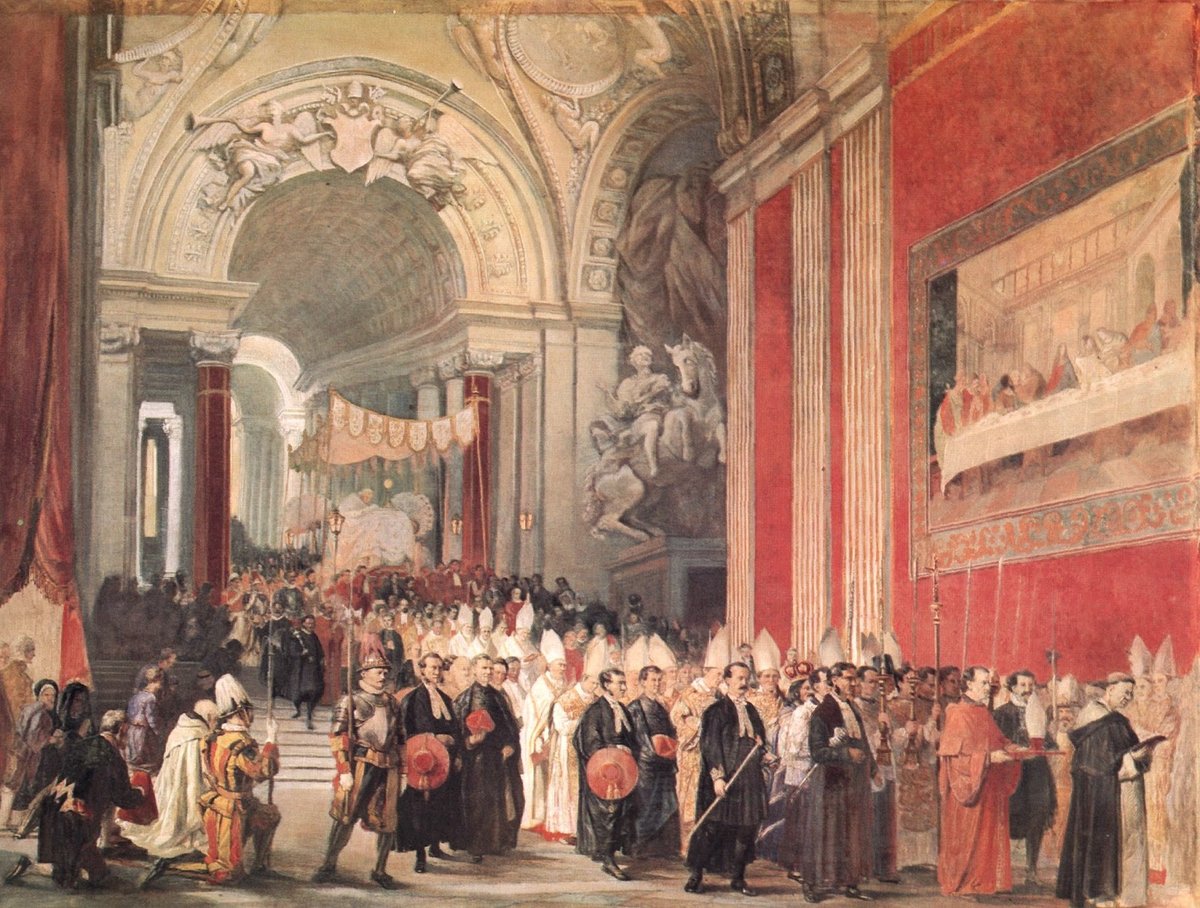
Scala Regia Vatican City: Visiting Hours, Tickets & Historical Significance
Date: 14/06/2025
Introduction
The Scala Regia, or “Royal Staircase,” is one of Vatican City’s most breathtaking and significant architectural treasures. Designed by Gian Lorenzo Bernini in the 17th century, this grand Baroque staircase not only connects the Piazza di San Pietro to the Apostolic Palace but also embodies the spiritual authority, artistic grandeur, and ceremonial traditions of the papacy. Through Bernini’s masterful manipulation of perspective and light, the Scala Regia transforms a functional passage into a theatrical experience, leading visitors symbolically from the earthly realm to the divine. Although access is highly restricted, the staircase remains a must-see highlight for those fortunate enough to experience it during special Vatican tours or events. This detailed guide explores the Scala Regia’s history, architectural innovations, symbolism, and essential visitor information, including hours, tickets, accessibility, and practical travel tips (Smarthistory, Vatican Museums, Wikipedia, Adequate Travel).
Table of Contents
- Introduction
- Historical Background
- Design, Layout, and Baroque Innovation
- Materials and Decorative Elements
- Spatial Illusion and Perspective
- Integration with Surrounding Architecture
- Artistic and Cultural Impact
- Visiting Scala Regia: Hours, Tickets & Accessibility
- Practical Tips for Visitors
- Nearby Attractions
- Frequently Asked Questions (FAQ)
- Summary & Conclusion
- References
Historical Background
Origins and Early Development
The need for a dignified passageway connecting the papal apartments to St. Peter’s Basilica led to the creation of the original staircase in the late 16th century under Pope Sixtus V. However, the initial structure lacked the ceremonial gravitas befitting the Vatican.
Bernini’s Transformation
In 1663, Pope Alexander VII commissioned Gian Lorenzo Bernini to redesign the staircase. Bernini elevated the Scala Regia into a monumental Baroque masterpiece, transforming an awkward corridor into a stately, theatrical route that has since become synonymous with papal processions and diplomatic receptions (Marder, 1997, Karsten, 2014).
Symbolism and Ceremonial Function
The Scala Regia was designed not only as a grand approach to the Apostolic Palace but as a powerful symbol of papal authority. The ceremonial ascent accentuates the transition from the secular to the sacred, reinforcing the spiritual journey central to the Vatican experience.
Design, Layout, and Baroque Innovation
Bernini’s Scala Regia is a triumph of Baroque architecture, known for its theatricality, symbolism, and technical ingenuity. The staircase measures about 60 meters (197 feet) in length, with steps that gently ascend while narrowing as they rise. Columns and a coffered ceiling enhance the illusion of greater height and length, while a large lunette window allows light to flood the upper landing (Smarthistory, Vatican Museums).
The staircase’s narrowing perspective and decreasing column spacing create a forced perspective, making it appear more grandiose and imposing. This spatial illusion guides visitors upward, symbolizing the ascent from the earthly to the divine.
Materials and Decorative Elements
Constructed primarily from travertine and white marble, the Scala Regia showcases Bernini’s attention to durability and visual impact. The balustrades and columns are crafted from travertine, while the steps are white marble. The walls are adorned with intricate stucco, gilded papal coats of arms, and Baroque ornamentation.
At the base stands Bernini’s equestrian statue of Constantine the Great, completed in 1670. This sculpture commemorates Constantine’s conversion to Christianity, symbolizing the enduring link between imperial Rome and the Catholic Church (Vatican Museums).
Spatial Illusion and Perspective
Bernini’s manipulation of perspective is one of the Scala Regia’s most celebrated features. The staircase tapers from approximately 4.35 meters (14.3 feet) at the base to just 2.7 meters (8.9 feet) at the top, while the columns are spaced closer together as they ascend. The ceiling height also increases, amplifying the sense of infinite ascent and reinforcing the spiritual symbolism (Smarthistory).
Integration with Surrounding Architecture
Scala Regia is seamlessly incorporated into the Apostolic Palace, connecting St. Peter’s Basilica with the Sala Regia and the papal apartments. Bernini’s design overcame the site’s spatial irregularities, transforming a previously awkward corridor into a luminous, ceremonial route that has become a focal point for papal pageantry (NYIT ARCH161).
Artistic and Cultural Impact
The Scala Regia is widely regarded as one of Western architecture’s most influential staircases. Its innovative use of light, perspective, and ornamentation set new standards for ceremonial stairways, inspiring countless architects and artists across Europe (Encyclopedia Britannica). It remains integral to Vatican ceremonies and symbolizes the Church’s authority and artistic heritage.
Visiting Scala Regia: Hours, Tickets & Accessibility
Visiting Hours and Tickets
Access to the Scala Regia is highly restricted. It is not open for independent visits but may be included in select official Vatican guided tours or during special events such as Jubilee years.
- Visiting Hours: When available, tours generally follow Vatican Museums’ hours: Monday to Saturday, 9:00 AM–6:00 PM (last entry at 4:00 PM). Closed on Sundays, except the last Sunday of each month, when entry may be free.
- Tickets: No standalone Scala Regia tickets exist. Access is bundled with special guided tours, often priced between €50 and €100, depending on the provider and tour inclusions. Booking in advance is essential (Vatican Museums).
Access and Entry
Visitors typically access Scala Regia with a guide through the Vatican Museums or a dedicated group entrance. Security is strict, with metal detectors and bag checks. Always follow your guide’s instructions and Vatican security guidelines.
Accessibility
Due to the historic staircase design and presence of numerous steps, Scala Regia is not wheelchair accessible. Those with limited mobility should check with tour providers about accessibility options in advance.
Practical Tips for Visitors
- Advance Booking: Reserve guided tours early, especially during high-demand periods such as Jubilee years.
- Dress Code: Shoulders and knees must be covered for all genders. Bring a shawl or scarf if needed.
- Travel Light: Large bags and backpacks may need to be checked at cloakrooms.
- Footwear: Wear sturdy, non-slip shoes; marble steps can be slippery.
- Hydration: Small water bottles allowed; no food or drinks inside.
- Photography: Non-flash photography is usually permitted, but always confirm with your guide.
- Behavior: Speak softly and respect the sacred atmosphere; eating, drinking, and use of mobile phones are not allowed inside.
Nearby Vatican Attractions
Visiting the Scala Regia is often part of broader Vatican tours that include:
- St. Peter’s Basilica: Renowned for its art and architecture.
- Vatican Museums: Home to the Sistine Chapel and vast art collections.
- Sala Regia: Grand hall for papal ceremonies.
- Pauline Chapel: A stunning, lesser-known chapel within the Apostolic Palace.
Booking combined tickets or comprehensive tours is recommended for a complete Vatican experience.
Frequently Asked Questions (FAQ)
Q: Can I visit the Scala Regia independently?
A: No, access is only via special guided Vatican tours or during official events.
Q: Is Scala Regia wheelchair accessible?
A: No, due to its historic design, the staircase is not accessible to visitors with mobility impairments.
Q: Are photos allowed inside Scala Regia?
A: Non-flash photography is usually permitted, but always check with your guide.
Q: Do I need a separate ticket for Scala Regia?
A: No, access is included only in select guided tours.
Q: What is the best time to visit?
A: Early morning or shoulder seasons (late autumn or early spring) offer less crowded conditions.
Summary & Conclusion
The Scala Regia stands as a testament to the Vatican’s fusion of spiritual authority, artistic genius, and ceremonial tradition. Bernini’s Baroque masterpiece remains one of Rome’s most influential architectural achievements, offering profound insight into the Church’s legacy. Although access is limited, careful planning, early booking of official guided tours, and respectful adherence to Vatican protocols can provide visitors with an unforgettable experience. For those unable to visit in person, virtual tours and high-resolution images offer an immersive alternative (Vatican Museums, Smarthistory).
Including Scala Regia in your itinerary enriches any Vatican visit, providing a unique perspective on the intersection of art, history, and faith. For continuous updates, ticket information, and expert travel tips, consult trusted resources such as the official Vatican Museums website and specialized travel apps like Audiala.
Call to Action
Planning your Vatican adventure? Download the Audiala app for real-time visitor updates, audio guides, and exclusive tips. Explore our other guides to St. Peter’s Basilica and the Vatican Museums, and follow us on social media for the latest travel insights.

Alt text: Scala Regia Royal Staircase at the Vatican, a Baroque architectural masterpiece by Gian Lorenzo Bernini.
References
- Vatican Museums, n.d., Official Vatican Museums Website (https://www.museivaticani.va/content/museivaticani/en.html)
- Smarthistory, 2017, Bernini’s Scala Regia (https://smarthistory.org/bernini-scala-regia/)
- Wikipedia, n.d., Scala Regia (Vatican) (https://en.wikipedia.org/wiki/Scala_Regia_(Vatican))
- Adequate Travel, n.d., Scala Regia Royal Staircase Overview (https://www.adequatetravel.com/placeguide/Vatican-City/scala-regia-royal-staircase-in-vaticancity-overview-prominent-features-history-interesting-facts)
- Encyclopedia Britannica, n.d., Gian Lorenzo Bernini Biography (https://www.britannica.com/biography/Gian-Lorenzo-Bernini)
- Audiala, n.d., Vatican Travel App (https://audiala.com)
